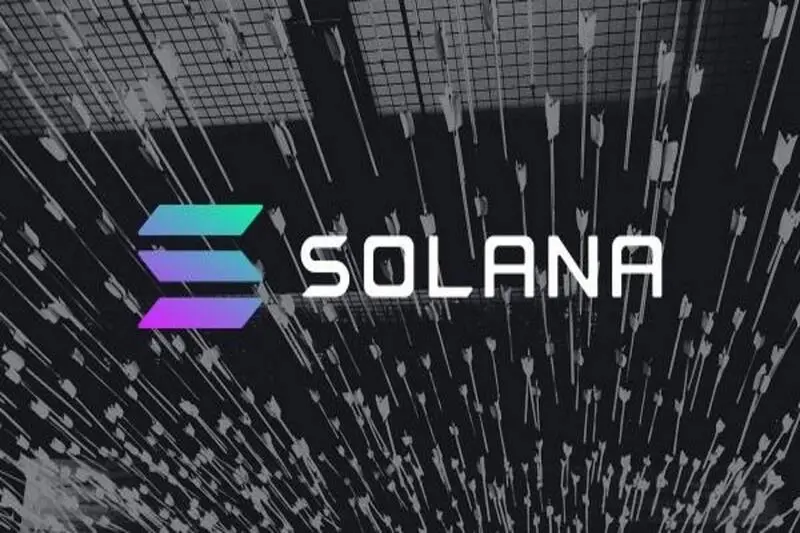Findora Launches Triple Masking ZK SDK: Simple Plug-And-Play
Findora Triple Masking SDK gives developers a simple way to integrate zero-knowledge proofs into their decentralized applications. Users will be able to conduct private transactions that remain auditable, with multiple options for what information is masked or remains transparent. It provides simple, plug-and-play privacy for every Web3 dApp.
Blockchain solved a foundational problem for digital assets: how do you “own” something that can be replicated exactly. How do you solve the “double-spend” problem? Fundamental to this solution was the transparency that saw how each digital asset moved around on a decentralized accounting system. While this technology removed the need for a third-party to act as a trusted record-keeper, it required the movement of these assets to be viewable by the public. As a result, industries and institutions that were required by law to keep certain personal identifying information secret (such as health records) were excluded from utilizing this new technological advancement.
Requirements for financial institutions to protect privacy have been codified by regulation for the past 50 years. Consumers are entitled to keep their personal financial information confidential from the general public. The regulations for these financial institutions focus on the need for the customers of a bank to give their consent to any sharing of their personal identifying information, such as account balances, product purchases and so on. Privacy, rightfully, has been recognized as the ability for the users alone to control and consent to who has access to their data.
Zero-Knowledge proofs are a cryptographic technique that enables blockchains to conceal transaction data while still allowing the information within them to be validated. This solution, while computationally complex, allows a blockchain to verify that a certain digital asset has been moved without requiring information about the sender, receiver and the asset itself.. In other words, they are the missing ingredient that can both provide private transactions of digital assets while assuring that those assets are only spent once.
Trending Stories
“Triple Masking fulfills a promise that blockchain technology made years ago: your financial status, your financial future, is no longer in the hands of some unknown, so-called “trusted” third party. It’s in your hands,” said Sam Harrison, CEO, Discreet Labs. “This SDK simplifies the developer experience of implementing complicated zk-proofs, which in turn enables more decentralized applications to offer the benefits of these zk-proofs to their users.”
Harrison went on,
“Users tend to have to make a choice between privacy and convenience. And when they do, they usually pick convenience. I am excited to see what choices developers can offer their users when privacy and convenience are both attainable.”
The Findora Triple Masking SDK is a privacy-focused asset transfer solution supported on the Findora Network that provides full-privacy protection and anonymity for transactions rather than simple pseudonymity. The SDK allows every developer to make their dApps ZK-enabled, with optional transaction privacy at three levels. Because it’s configurable, users have the choice to mask the wallet addresses of both the sender and the receiver, the type of asset involved, and the amount sent. At the same time, transactions will remain auditable to ensure compliance with regulatory bodies. Findora Triple Masking SDK integrates asset tracing capabilities that allow every transaction to be monitored by auditors, while obscuring them from prying eyes on the public blockchain.
“Triple Masking is more than simply encrypting information. We are also offering the ability to trace assets in a way that complies with existing regulations and Analysis tools. This way, Triple Masking solves both the privacy AND compliance requirements of a professional institution,” Harrison added.
Built on application-specific turbo-plonk ZK-circuits, Findora Triple Masking is significantly faster than the industry benchmark, with the ability to scale to thousands of transactions per second. Add interoperability with leading elliptic curve signing algorithms such as ed25519 and secp256k1, and developers will be able to add masking services to transactions between EVM standard wallets and more privacy preserving architectures like bitcoin’s unspent transaction output (UTXO) format. Additionally, by utilizing Findora’s Prism++ transfer mechanism, developers will be able to wrap any asset class (such as an FRC20, FRC721 or FRC1155) with these privacy preserving Features. Through this simple software development kit, Findora is primed to become the de facto universal privacy layer for all Web3.
“Findora Triple Masking uses application-specific turbo-plonks, a type of zero-knowledge succinct non-interactive argument of knowledge, also known as a zk-Snark. This solution creates an anonymous blind asset record (an “ABAR”) that enables asset transfers to be encrypted as a cryptographic commitment rather than storing transaction data in plaintext like they do on other public ledgers,” said Weikeng Chen, Chief Scientist, Discreet Labs. He went on, “This is similar to the way zcash stores their cryptographic commitments. For most EVM chains, however, the transaction data is stored as plaintext and is therefore open to public scrutiny.”
Findora’s compatibility with the secp256k1 curve will enable common EVM wallets such as MetaMask to sign a transaction. “While MetaMask may not be able to enable private transactions directly,” Harrison said, “the private transactions can be signed by MetaMask and handled by the applications directly.”
Harrison continued, “This is a very significant achievement. The release of this SDK is the culmination of the original design of the founders of Findora. A solution set that provides a user with the choice to retain confidentiality while at the same time providing a mechanism that supports regulatory compliance regarding asset tracing and other applicable laws. It isn’t an exaggeration to say that this solution is what the blockchain industry has been waiting for.
About Findora
Findora is a public blockchain with programmable privacy. Originally conceptualized as a university cryptography research project in 2017, and finally launched to the public in 2021, Findora utilizes the latest breakthroughs in zero-knowledge proofs and multi-party computation, to allow users transactional privacy with selective auditability. For more information, please visit https://findora.org/.





Comments
Post a Comment